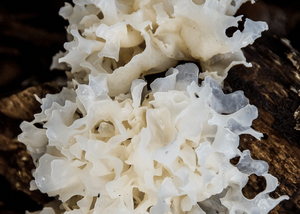Being a vegan is a lifestyle choice that everybody cannot commit to, but those who do have discovered an abundance of health benefits and product variety. One of the most significant concerns vegans have is about maintaining good gut bacteria, which yields a range of physical and mental advantages, including improved digestion, immune system function, and even mental health.
However, getting beneficial bacteria into their diet is not as complicated as it may seem. In this article, we are going to look at some of the best ways for vegans to acquire good bacteria.
Fermented Foods
This is one of the most widely recognised and consumed sources of gut-healing probiotics by many health enthusiasts. Vegan-friendly fermented foods include kimchi, kombucha, sauerkraut, tempeh and miso.
Almond and soy yoghurt are also excellent alternatives to help maintain a healthy gut. However, as not all fermented foods are vegan-friendly, check the label before purchase.
Probiotic Supplements
As the name implies, these supplements contain live beneficial bacteria, which many find helpful for preventing and treating some gastrointestinal disorders such as irritable bowel syndrome and inflammatory bowel disease.
They are recommended by health experts and can be sourced from a local health food store or pharmacy. Vegans should look for vegan supplements formulated without dairy, fish, or animal products.
Prebiotic Foods
It is important to know that healthy bacteria cannot survive without nourishment. They need prebiotic foods to thrive, and these nourishing agents can be found in vegan-friendly foods such as green leafy vegetables, bananas, asparagus, berries, and flaxseeds. These foods help feed the beneficial bacteria in the gut, which in turn grows stronger and proliferate within the body.
Whole Plant Foods
Foods rich in soluble and insoluble fibre such as oats, barley and brown rice are also good for the gut. Fibre essentially speeds up the movement of food through the digestive tract, preventing the growth of harmful bacteria and infections. They also aid satiety and regulate blood sugar levels.
Soil-Based Organisms (SBOs)
SBOs are a group of bacteria that live in the soil and promote the growth of healthy bacteria in your gut. Vegans can get SBOs by consuming organic fruits and vegetables that haven't been washed or peeled or eating edible mushrooms and roots. However, it's not recommended to consume unwashed fruits and vegetables due to the risk of harmful bacteria and pesticides.
Avoid Exposure to Antibiotics
Overuse of antibiotics can have an adverse effect on gut health. Therefore, vegans should always try to avoid over-the-counter medication and instead opt for a holistic approach to ailments in the form of natural remedies like ginger, garlic, and turmeric, or visit a healthcare professional, who is willing to prescribe antibiotics only when necessary.
In conclusion, it is vital that vegans strive to maintain a healthy balance of gut bacteria for optimal health benefits. Fermented foods, prebiotic food, and whole plant-based foods, not to forget avoiding exposure to antibiotics, are all great ways to maintain a healthy balance of bacteria in the gut. So, incorporate these tips into your daily diet, and watch as your gut begins to function optimally.













Member discussion